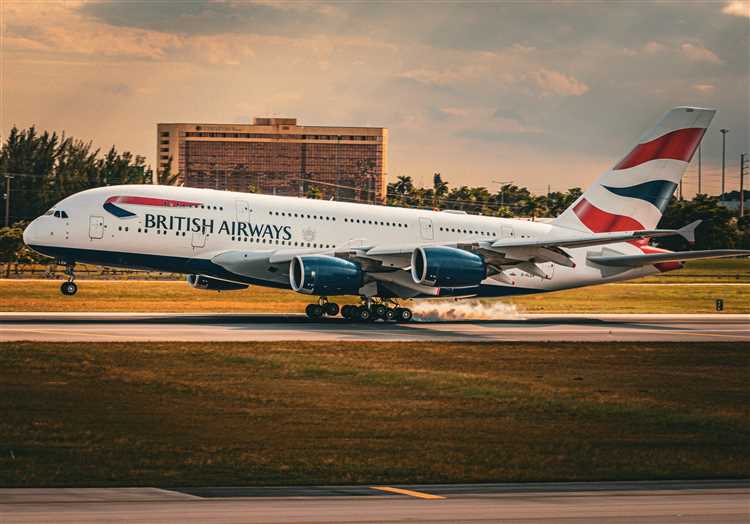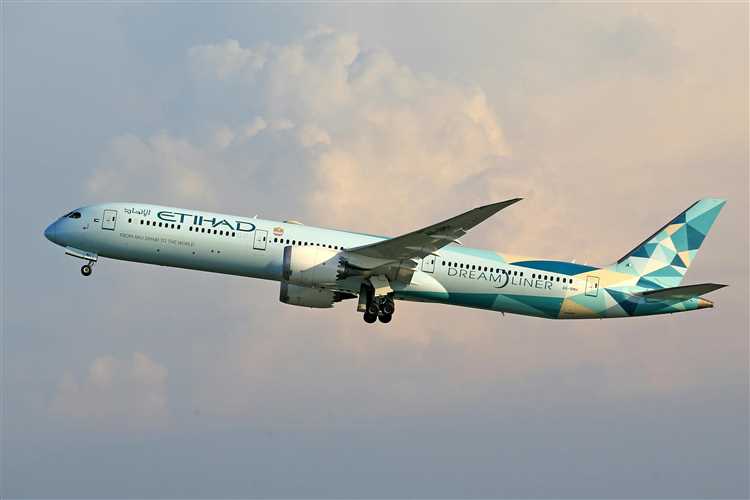
Booking a flight can be overwhelming with so many options available. Choosing the right airline can make a significant difference in your travel experience. From comfort to pricing, there are various factors that determine which airline is best suited for your needs.
Understanding the essential aspects of flight booking, such as baggage policies, flight schedules, and overall service quality, is key to making an informed decision. Each airline offers unique benefits, and what works for one traveler may not work for another.
In this guide, we’ll walk you through important tips and considerations to help you pick the airline that suits your budget, preferences, and travel plans. Whether you prioritize low fares, comfort, or flexibility, knowing what to look for can enhance your journey from start to finish.
How to Compare Airline Services

When selecting an airline, it’s essential to compare the services they offer to ensure you get the best experience for your needs. Each airline has different offerings, and understanding them can help you make an informed decision. Key factors to consider include in-flight amenities, customer support, and overall service quality.
Here’s a comparison table to help evaluate the core services provided by airlines:
By examining these features, you can assess which airline offers the services that align with your travel priorities. Don’t forget to check for additional benefits such as loyalty programs, meal options, and cancellation policies when comparing airlines.
Choosing Flights Based on Your Budget
When booking a flight, your budget is one of the most important factors to consider. Airlines offer different pricing structures depending on the time of booking, class of service, and other variables. By following a few strategies, you can find the best flight options that fit your budget without compromising on essential aspects of your trip.
- Book in Advance: Flights are typically cheaper when booked several weeks or months ahead of time. Last-minute bookings often result in higher fares.
- Use Fare Comparison Websites: Tools like Skyscanner, Google Flights, and Kayak allow you to compare prices across multiple airlines and booking platforms.
- Be Flexible with Dates: Airfares can vary significantly depending on the day of the week and time of year. If you have flexible travel dates, you can often find cheaper flights.
- Consider Budget Airlines: Low-cost carriers can offer great savings, but be mindful of additional fees for baggage, seat selection, and other services.
In addition to these strategies, be sure to check for discounts, special offers, or promotions that may be available through loyalty programs or specific credit cards.
- Check for Hidden Fees: Always review the total cost of your ticket, including fees for checked baggage, seat selection, and meals.
- Evaluate Economy vs. Premium Services: While premium services may offer added comfort, they often come with a higher price tag. Consider whether you need the extra luxury or if a standard economy seat fits your needs.
By applying these tips, you can maximize your travel budget and enjoy a smooth flight experience without overspending.
Understanding Airline Baggage Policies
Each airline has its own baggage policy, which can significantly affect the overall cost of your flight. Before booking, it’s crucial to understand what is included in your ticket, what additional fees you may incur, and what limitations apply to your baggage. Here are key points to consider when reviewing an airline’s baggage policy:
- Checked Baggage Allowance: Many airlines provide a free checked bag with your ticket, while budget carriers may charge extra. Ensure you check the weight and size limits for checked bags.
- Carry-on Baggage: Most airlines allow at least one carry-on bag for free. However, the size and weight restrictions can vary, so verify the exact dimensions and weight allowed.
- Excess Baggage Fees: If your bags exceed the weight or size limit, airlines will charge additional fees. These can be quite expensive, so it’s wise to pack within the allowed limits.
- Special Items: If you’re traveling with oversized items like sports equipment or musical instruments, check the airline’s policy for handling such items. Some airlines allow these items for free or charge a special fee.
Here are some practical tips to avoid excess baggage fees:
- Weigh your bags before you travel to ensure they’re under the airline’s weight limit.
- Consider packing lightweight items or distributing your belongings between checked and carry-on bags to minimize extra charges.
- If you’re flying with a budget airline, check whether the price of your ticket includes any baggage at all, and whether additional baggage can be added during booking.
By understanding the baggage rules of your chosen airline, you can avoid unexpected fees and ensure a smoother, more affordable travel experience.
Checking Flight Schedules and Flexibility
When booking a flight, it’s essential to consider the airline’s schedule and the flexibility of the ticket. Flight times can affect your overall travel experience, and flexible options may save you time and money if your plans change. Here are some key points to consider when checking flight schedules and flexibility:
- Flight Departure and Arrival Times: Check the departure and arrival times to ensure they fit with your travel plans. Early or late flights may offer lower fares but can be less convenient.
- Non-stop vs. Connecting Flights: Non-stop flights are usually more convenient, but connecting flights can sometimes offer lower prices. Weigh the savings against the extra travel time.
- Flight Frequency: Some airlines offer multiple flights per day on popular routes. If your travel dates are flexible, you can choose a flight that fits your schedule better.
- Flexible Ticket Options: Look for tickets that allow changes or cancellations without hefty fees. Many airlines now offer flexible booking options, which can be useful in case your plans change unexpectedly.
For added flexibility, consider booking a flight with a long layover if you want to explore another city or have a buffer in case of delays. Many airlines also offer refundable or changeable tickets, though these tend to be more expensive than non-refundable options.
By thoroughly reviewing flight schedules and ticket flexibility, you can find the best flight times that match your needs and minimize stress during your travels.
Customer Reviews: What to Look For

Customer reviews can provide valuable insights into an airline’s service quality, but it’s important to know what to look for to get an accurate understanding of the airline’s performance. Here are the key aspects to focus on when reading reviews:
- Seat Comfort: Look for comments on legroom, seat width, and overall comfort. This is crucial for longer flights where comfort is a priority.
- Customer Service: Pay attention to feedback on how the airline handles customer service issues. Positive reviews about friendly and helpful staff can indicate a higher level of service.
- Punctuality: Consistent on-time departures and arrivals are essential. Many reviews mention delays and cancellations, which can significantly impact your travel experience.
- Baggage Handling: Check for reviews about how efficiently and carefully the airline handles checked baggage. Frequent complaints about lost or damaged luggage may be a red flag.
- Food and In-Flight Amenities: Depending on your preferences, reviews can help you assess the quality of meals, entertainment options, and the overall experience during the flight.
Additionally, consider the overall rating and the number of reviews. A large number of positive reviews generally reflects consistent service. However, be cautious of reviews that seem too exaggerated or extreme, as they may not provide an accurate picture.
By focusing on these key elements, you can make a more informed decision and choose an airline that aligns with your travel expectations.
Importance of In-Flight Comfort
In-flight comfort plays a crucial role in enhancing your travel experience, especially during long-haul flights. Comfort can affect your overall satisfaction with the airline and may influence your decision to fly with them again. Here are the main factors that contribute to in-flight comfort:
- Seat Size and Legroom: The space between seats, especially in economy class, can vary significantly between airlines. Extra legroom and wider seats provide more comfort, particularly on longer flights.
- Seat Recline and Adjustability: The ability to adjust your seat, especially on overnight flights, can make a big difference in your ability to relax and sleep during the journey.
- Cabin Temperature: A comfortable cabin temperature is essential for a pleasant flight. Pay attention to reviews or information about an airline’s ability to maintain a comfortable temperature throughout the flight.
- Noise Levels: Noise-canceling headphones and quieter cabins can help reduce the stress and discomfort caused by engine noise, making for a more peaceful experience.
- Availability of Amenities: Additional comforts like pillows, blankets, and personal entertainment options can enhance the flight experience. Some airlines offer better amenities for passengers in all classes, while others reserve them for premium cabins.
While comfort may vary depending on the airline and aircraft type, choosing an airline with better in-flight services can make your journey much more enjoyable and help you arrive at your destination feeling less fatigued.
Booking Direct vs. Third-Party Websites
When booking a flight, you have the option to reserve directly with the airline or through third-party websites. Each approach has its advantages and disadvantages, and understanding them can help you choose the best option for your needs.
- Direct Booking with the Airline: Booking directly through an airline’s website often provides the most straightforward experience. It allows you to manage your booking easily, access customer service directly, and sometimes earn loyalty points or frequent flyer miles. Additionally, airlines may offer better flexibility in changing or canceling flights booked through their own platform.
- Third-Party Websites: Websites like Expedia, Kayak, or Skyscanner often allow you to compare prices across multiple airlines, helping you find the best deal. These platforms sometimes offer package deals, which can include hotel stays or car rentals, providing more value for money. However, if issues arise, you may have to deal with a third-party support team, which can complicate the process.
- Price Differences: While third-party websites may offer lower prices, they sometimes include hidden fees or limited customer support. Direct booking with the airline may be slightly more expensive, but you may benefit from more transparent pricing and better customer service.
- Flexibility and Changes: Booking directly with an airline often gives you more flexibility if you need to change your flight or make special requests. Some third-party websites charge additional fees or have stricter change policies, which could be inconvenient if your travel plans change.
Both booking methods have their merits, but if you prioritize customer service, flexibility, and earning loyalty rewards, booking directly with the airline may be the better choice. If you’re focused on finding the lowest possible price and are comfortable with the extra steps involved in dealing with third-party platforms, booking through a comparison site might be the way to go.